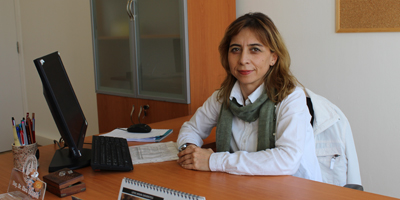World After COVID-19

European University of Lefke, , Faculty of Economics and Administrative Sciences, Assoc. Prof. Dr. Ebru Oğurlu provided detailed information on “World after COVID-19”.
Oğurlu: The global crisis that started with the COVID-19 outbreak is the turning point of the twenty-first century.
“The global crisis that started with the COVID-19 outbreak is the turning point of the twenty-first century. As a result of the extraordinary developments after the pandemic, the structure has been resolved and inevitably a new construction process will start and today’s crisis will be the trigger of a major structural transformation globally. She stated that as of today, it is not possible to make great analyses and to make precise decisions about the direction of this transformation.
Oğurlu: Decisions and choices to be made on a national scale are vital as they have the capacity to shape the global future.
Oğurlu mentioned that there are two different options before the states and therefore the international system. In the face of the “state of emergency” on the one hand, the states trying to become self-sufficient by centralizing their power and continuing their policies, thickening the walls they have built at their borders. On the other hand, it has classified it as contributing to the strengthening of the collective and joint prosperity by acting in the framework of global cooperation based on trust, transparency and solidarity. Oğurlu stated that the decisions and choices to be made on a national scale are of vital importance as they have the capacity to shape the global future.
“The COVID-19 crisis has deeply affected Europe as well as the entire global system. This crisis, which started as a health crisis, has turned into a crisis of trust throughout the European Union and the “European ideal”, which has a history of more than 60 years” She pointed out that the European Union is at a crossroads as of today and that members of the union should urgently find a way to establish genuine solidarity and cooperation and to restructure them which will make them even more powerful in the transnational structure. Oğurlu pointed out that national reflexes and nationalism trends that would otherwise easily dominate the union had the potential to destroy all the achievements of the past.
